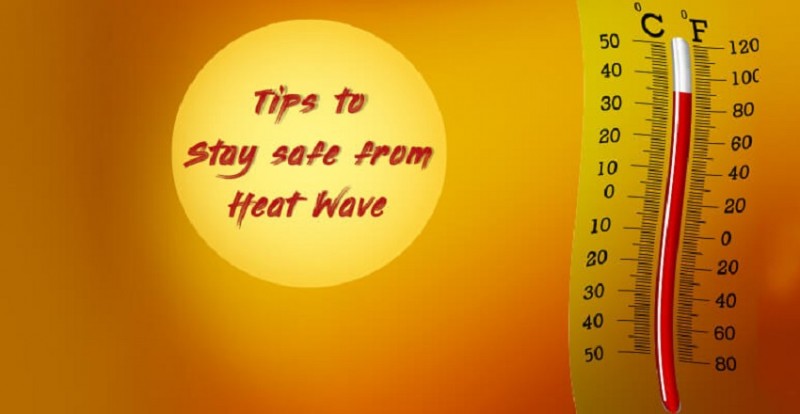
As the temperature rises and the sun beats down relentlessly, the risk of heat-related illnesses, including heatstroke, becomes a real concern. Heatstroke occurs when the body overheats to dangerous levels, and it can have serious consequences if not addressed promptly. However, with some simple precautions and lifestyle adjustments, you can beat the heat and keep heatstroke at bay. Here are some tips to help you stay cool and safe during hot weather.
Stay Hydrated:
One of the most crucial steps in preventing heatstroke is to stay hydrated. When the weather is hot, your body loses water through sweat at a faster rate, increasing the risk of dehydration. Make it a habit to drink plenty of fluids throughout the day, even if you don't feel thirsty. Opt for water, fruit juices, coconut water, or sports drinks to replenish electrolytes lost through sweating.
Dress Appropriately:
Choose lightweight, loose-fitting clothing made from breathable fabrics such as cotton or linen. These materials allow air to circulate around your body, helping to keep you cool. Avoid dark-colored clothing, as it absorbs more heat from the sun. Wearing a wide-brimmed hat and sunglasses can also provide additional protection from the sun's rays.
Seek Shade:
When outdoors, seek shade whenever possible, especially during the hottest parts of the day. Limit your exposure to direct sunlight, and take breaks in shaded areas to give your body a chance to cool down. If you're participating in outdoor activities, try to schedule them for the early morning or late afternoon when the sun is less intense.
Take Cool Showers or Baths:
Cooling off with a refreshing shower or bath can help lower your body temperature and provide relief from the heat. If you don't have access to a shower, wetting a towel with cool water and placing it on your skin can have a similar cooling effect. Additionally, using a fan or air conditioning to circulate air can help speed up the evaporation of sweat, further cooling your body.
Avoid Strenuous Activities:
During periods of extreme heat, it's essential to listen to your body and avoid engaging in strenuous activities that can increase your risk of heatstroke. If you must exercise outdoors, try to do so in the early morning or late evening when temperatures are cooler. Pace yourself, take frequent breaks, and listen to your body's signals to prevent overheating.
Monitor High-Risk Individuals:
Certain groups of people are more susceptible to heat-related illnesses, including the elderly, young children, and individuals with chronic medical conditions. Keep a close eye on high-risk individuals, ensuring they stay hydrated, cool, and comfortable. Encourage them to seek medical attention if they show signs of heat exhaustion or heatstroke, such as rapid heartbeat, confusion, or nausea.
Never Leave Children or Pets in Hot Cars:
The interior of a parked car can quickly reach deadly temperatures, even on relatively mild days. Never leave children, pets, or anyone else inside a parked car, even for a short period. Make it a habit to check the backseat before exiting your vehicle to ensure no one is left behind.
By adhering to these simple tips, you can protect yourself and your loved ones from the dangers of heatstroke during hot weather. Stay hydrated, dress appropriately, seek shade, and avoid strenuous activities during the hottest parts of the day. Remember to monitor high-risk individuals and never leave children or pets in hot cars. With a little awareness and preparation, you can beat the heat and enjoy a safe and healthy summer season.